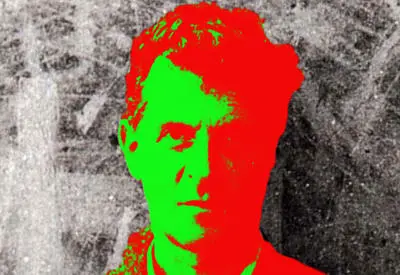Wittgenstein is known as a philosopher who sought to cure philosophy from unclear thinking. For him, philosophy’s attempts to answer traditional metaphysical questions like “Is there a God?”, “What is the nature of reality”, “Do we have free will?” end up in confusion and nonsense. But in his attempt to avoid the pitfalls of traditional metaphysics, Wittgenstein ends up asking questions about the way we make sense of things, that are metaphysical, argues A.W. Moore.
This is the sixthinstalment in our series The Return of Metaphysics, in partnership with the Essentia Foundation. Read the series' previous articles The Return of Metaphysics: Hegel vs Kant, The Return of Idealism: Hegel vs Russell, Derrida and the trouble with metaphysics,The Return of Metaphysics: Russell and Realism, and After Metaphysics: Rorty and American Pragmatism.
It is well known that Wittgenstein’s early philosophical work and his later philosophical work are marked by various profound differences of style and content. Nevertheless, there are some equally profound and very significant continuities. Among these are his conception of philosophy itself and, relatedly, an apparent recoil from metaphysics. Let us look at these in turn.
Wittgenstein conceives of philosophy as an activity, rather than a body of doctrine. Its aim is to promote clarity of thought and understanding, not to discover and state truths about the nature of reality. Moreover, this aim is to be viewed in therapeutic terms. Philosophy is an antidote to unclear thinking, and specifically to the ill effects of our mishandling our own ways of making sense of things. For an example of such ill effects, consider someone interested in the privacy of sensations who asks the following question and who struggles to find any satisfactory answer: ‘Why can nobody else know with the certainty I do whether I feel pain?’ On Wittgenstein’s view, if we attend to the way in which sentences like ‘I feel pain’ are actually used, then this will appear akin to someone grappling with the gibberish: ‘Why can nobody else know with the certainty I do whether ouch!?’ Philosophy can be used to show that there is no real problem here.
 SUGGESTED READING
Wittgenstein's Tractatus at 100
By IAI Editorial
Or at least, this is true of good philosophy. Wittgenstein distinguishes between good philosophy, which is what we have just been talking about, and bad philosophy, which is the home of the very confusions against which good philosophy is pitted.
SUGGESTED READING
Wittgenstein's Tractatus at 100
By IAI Editorial
Or at least, this is true of good philosophy. Wittgenstein distinguishes between good philosophy, which is what we have just been talking about, and bad philosophy, which is the home of the very confusions against which good philosophy is pitted.
This brings us to the apparent recoil from metaphysics. For in both his earlier work and his later work, the only clearly pertinent uses of the term ‘metaphysical’ indicate that Wittgenstein identifies metaphysics with bad philosophy. ‘What we do,’ he writes in Philosophical Investigations, ‘is to bring words back from their metaphysical to their everyday use.’ That is, what ‘we’ do, qua good philosophers, is to rescue words from their abuse in the hands of bad philosophers (who no doubt, very often, include ‘us’).
___
Metaphysics is simply the most general attempt to make sense of things. This leaves entirely open what kinds of questions metaphysicians ask, or what kinds of methods they adopt.
___





















Join the conversation